Learn how these nine Enactus student ventures supported by us positively change the world
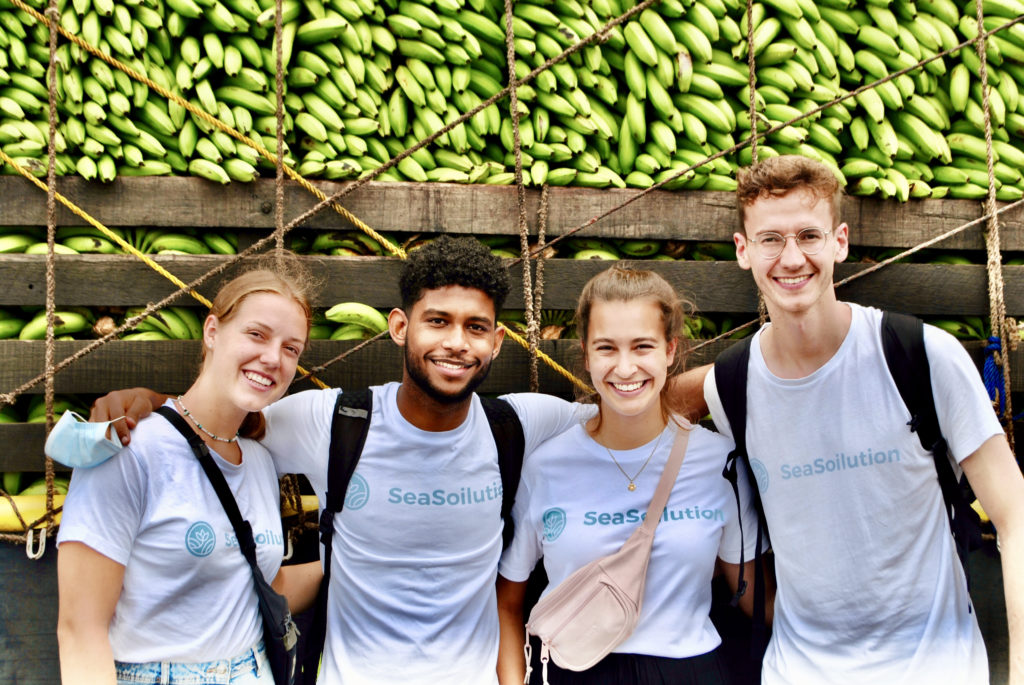

Entrepreneurial action for a better world! Through the global Enactus network, students develop entrepreneurial solutions on their campuses that positively change the world. Here we show all nine teams that we have supported to date!
Enactus is a global initiative which empowers student leaders across the globe to use innovation and business skills to ensure that all people thrive in a sustainable world. The teams with the best business models take part in National Cups, whose winners meet once a year for the Enactus World Cup. Last year it took place in Utrecht, Netherlands.
We have already supported nine Enactus teams through GOOD. Here we show them all! They take us on a journey starting at home out into various continents.
Pfandgeben – Bottle Refund App
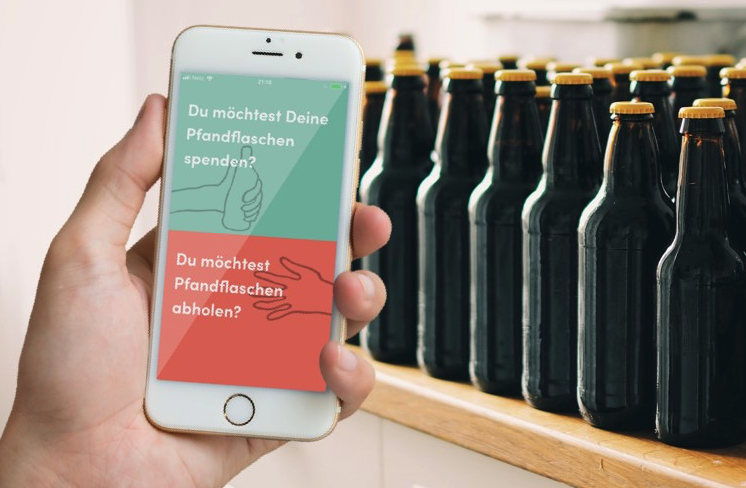
Pfandgeben App – Bottle deposit as a means to uplift homeless people
Collecting returnable bottles, e.g. from glass containers, is a source of income for people living on the street. Students at Leibniz University Hannover found out that 80% of the deposit bottle collectors they surveyed had a smartphone. This gave rise to the Pfandgeben app. It enables people to easily and simply donate returnable bottles for a good cause. These are collected at home by the bottle collectors – coordinated via the app. A win-win situation for both sides. The project has now outgrown the university context and is a project of the Sozialhelden – social heroes.
Socialbnb
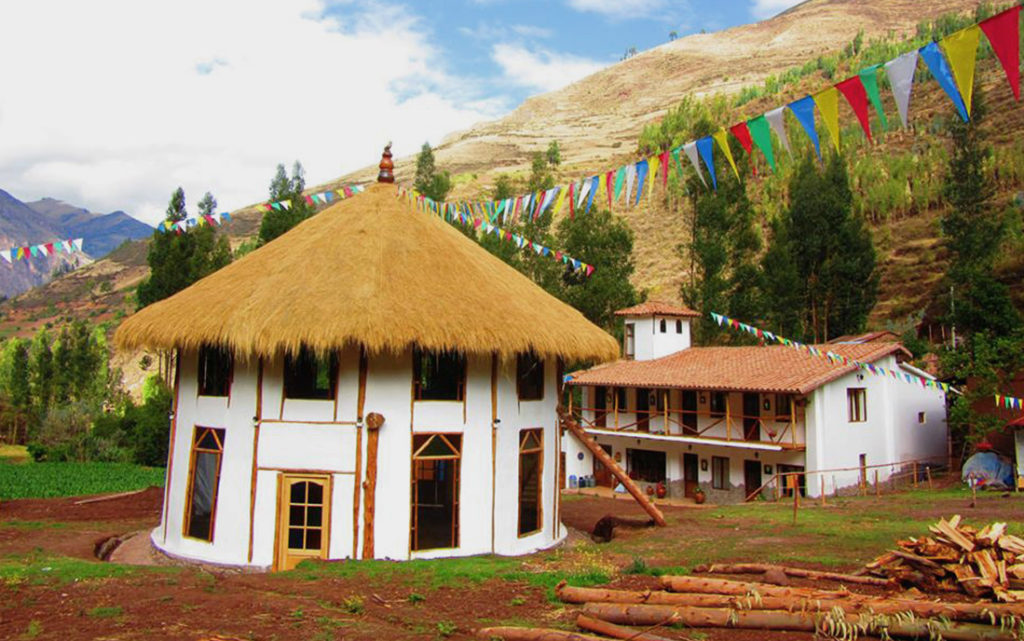
Socialbnb – Staying overnight with local NGOs
There are innovative approaches that make it easy to get involved, not only at home but also on the road. The founders of Socialbnb have created an online platform that can be used to book overnight stays, just like Airbnb. The all-important difference: the overnight stays are with local non-profit organizations. This is doubly good: the organizations can generate additional income for their work by renting out free rooms. And the travelers gain insights into the work of organizations that they would otherwise not get to know. Especially when traveling to foreign countries, this offers an authentic experience and insights into the respective culture, which are rarely possible on a package tour or while staying in an ordinary hostel. Pilot, which started as an Enactus Cologne project, is now an independent company with a continuously growing range of accommodation.
Moufense
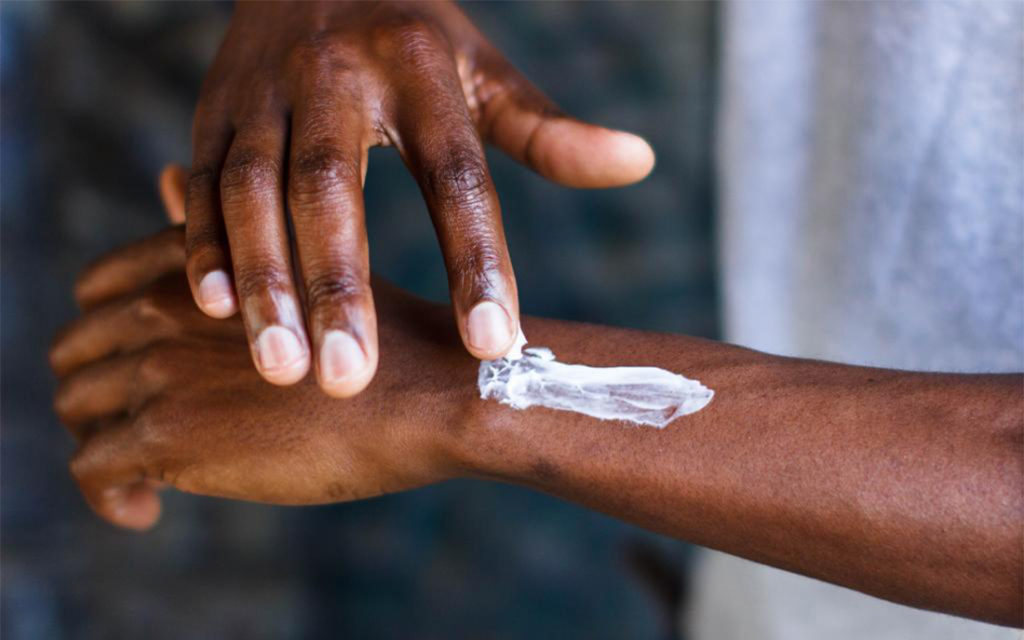
Moufense – Malaria protection for all
Students from Mannheim have noticed that Europeans are intensively concerned with malaria protection when traveling to tropical countries. But what about the locals? Apart from malaria nets, malaria protection is largely unknown or too expensive. However, the students have noticed that using body lotion is extremely popular, even with hardly any money available. This is how the idea of Moufense came about a body lotion with integrated insect protection. The system is to be implemented as a social franchise system in which production takes place locally, except for a few ingredients, and distribution is organized decentrally. Togo is planned as a pilot country, but the project is currently stalling due to administrative hurdles.
Plastic 2 Paint
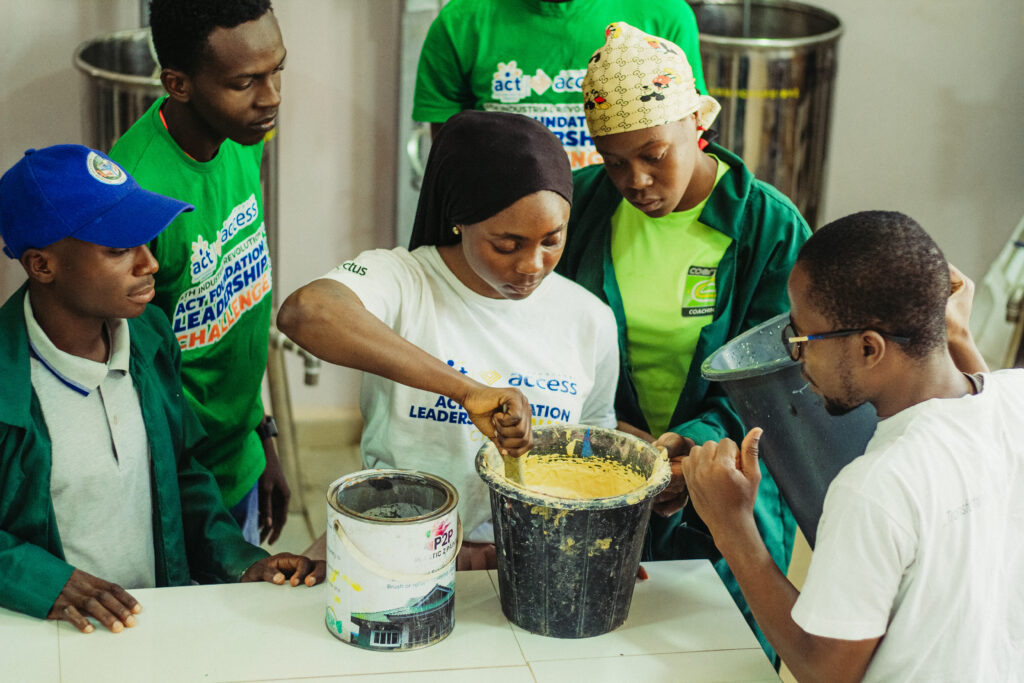
Plastic to Paint – Insect repellent paint from Nigeria
Students at Ahmadu Bello University in northern Nigeria have developed an unusual product. A wall paint to which a natural insect repellent made from orange peel has been added. Even if the protection is not comprehensive and the tests only cover 6 months, not having to think about malaria protection daily is an additional positive effect. The innovation goes even further: for the manufacturing process, plastic sachets are recycled, in which drinking water is bottled and sold in large parts of West Africa. In this way, the start-up also contributes to a circular economy and prevents plastic from ending up in rivers and eventually in the sea.
Fish’N’Bricks
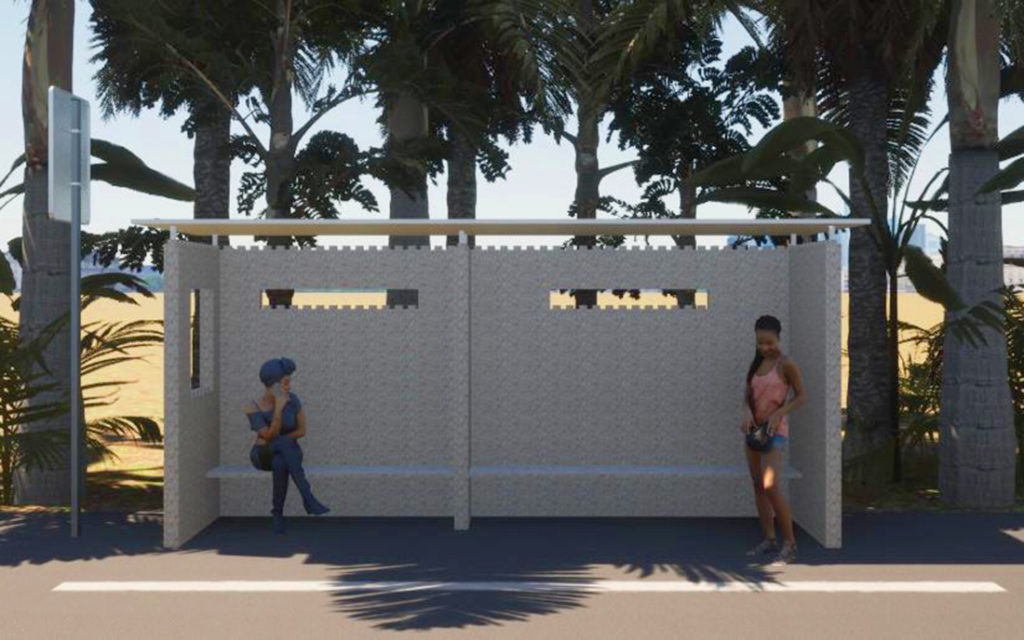
FishNBricks – Building made from ocean plastic in Indonesia
From Nigeria to Indonesia: Around 6,000 inhabited islands are gradually striving for sustainable material cycles. But is that possible? Even if it were possible to reduce plastic waste to zero, ocean plastic would still be washed up on the beach. Students at the KIT-Karlsruhe Institute of Technology have been looking for a solution to this problem and founded FishNBricks. The idea is that even low-grade plastic waste such as washed-up plastic waste or composite materials can be pressed into bricks on-site using simple machines, which can be used in construction. Applications are mainly the construction of walls, changing rooms, or bus stops. Residential buildings are not planned, as evaporation cannot be 100% avoided.
glassic
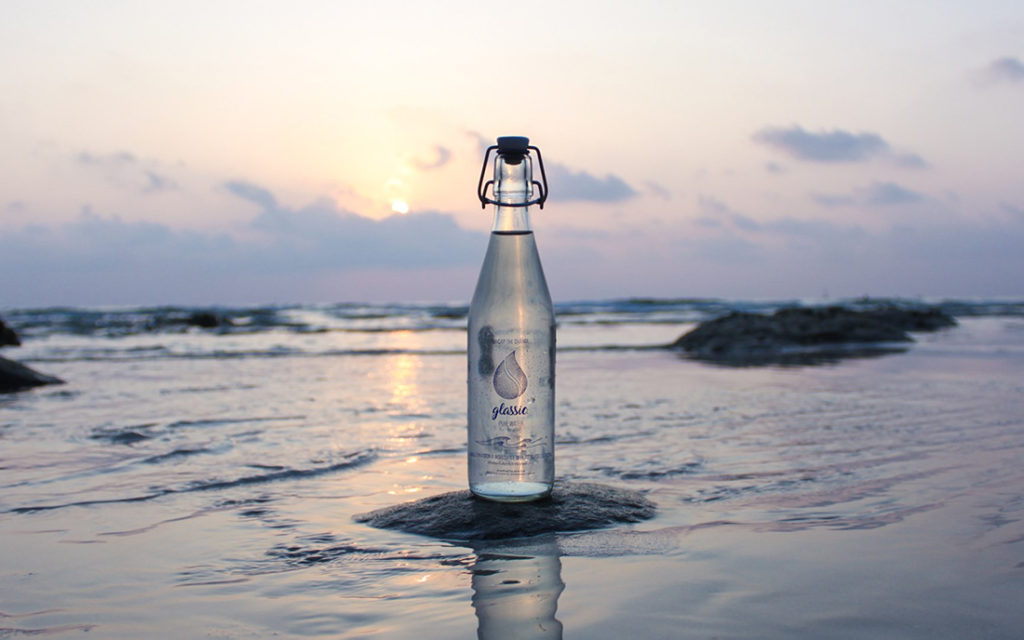
glassic – Introducing deposit bottles on the island of Ko Kut
The non-profit start-up glassic which is implementing its first pilot project on the island of Ko Kut in Thailand, is also pursuing a particularly innovative approach to combating ocean plastic. The students of the Technical University of Munich have recognized that it is not only ecologically nonsensical to transport drinking water in plastic bottles over long distances to remote islands. It also makes little economic sense. The solution is crystal clear: Glassic is establishing a returnable deposit system for water that is bottled and sold locally. The social enterprise wants to use the proceeds to finance ocean clean-ups and awareness-raising measures so that the idea can spread.
Seasoilution
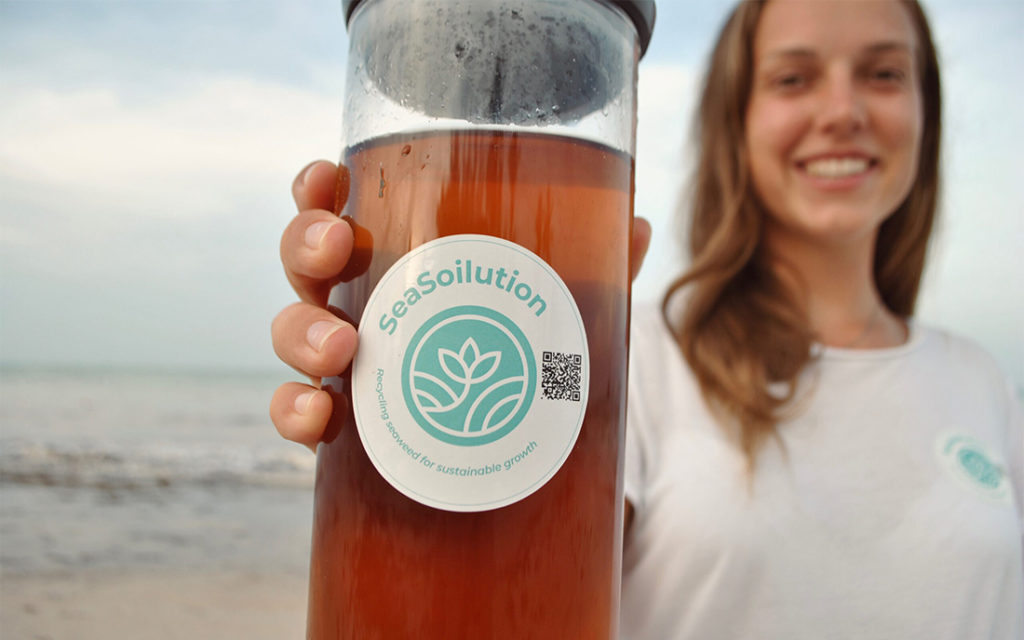
Seasoilution – Producing biofertilizer from seaweed in the Dominican Republic
Another team from Enactus Munich is developing solutions for a plague floating on the sea: the so-called “Sargassum carpet”, a large area of around 20 million tons of seaweed floating on the North Atlantic. Again and again, large quantities are washed ashore, for example in the Caribbean or the Yucatan Peninsula in Mexico. The seaweed not only smells bad but makes beaches unattractive for tourists. Rotting produces methane, which escapes into the atmosphere as a harmful greenhouse gas. However, if the seaweed is recycled directly, it is used to produce a highly effective biofertilizer – an absolute win-win situation. The MIT start-up SOS Carbon, with which the Seasoilution team is working in part, is also working on this and similar ideas. Their focus is on how sargassum can be collected before the seaweed washes up on the coast.
Save the grain
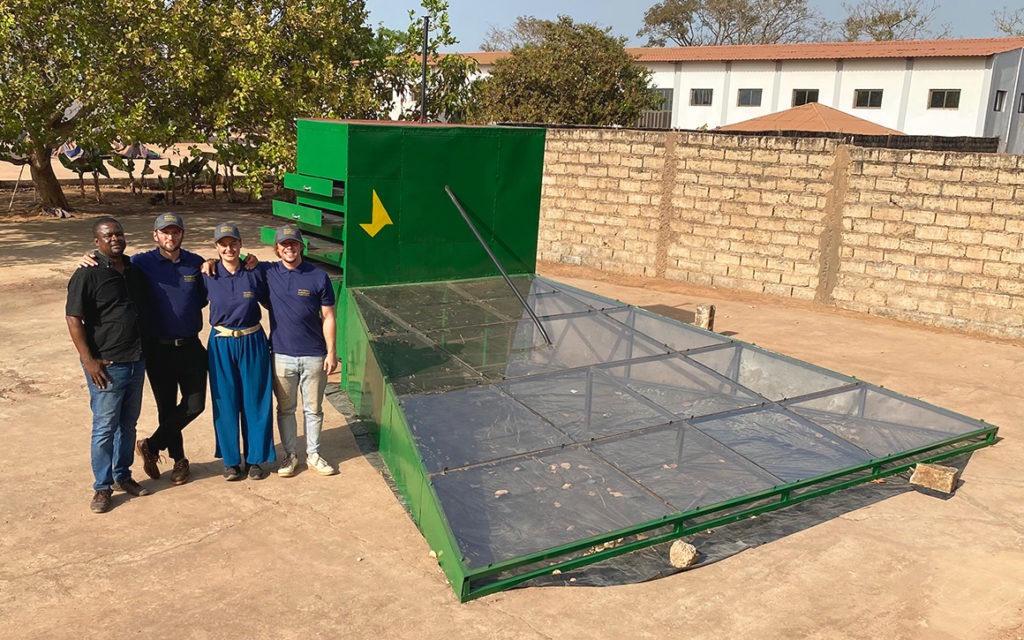
Save the grain – Minimizing harvest loss through dried storage of food in Senegal
Almost a third of the harvest in Africa is lost because it cannot be stored properly. Students at the University of Cologne want to remedy this situation with their start-up Save the Grain. Their low-tech solar dryer works without electricity and can be produced locally as far as possible. It is used to dry agricultural products such as maize, manioc, or mangoes and then store them safely in airtight bags. This reduces harvest losses and allows farmers to sell their harvest at a time when good prices are achieved. This greatly expands the farmers’ scope for action. They are no longer forced to sell their harvest at knock-down prices to middlemen who take advantage of their situation.
Samaki Aquapond
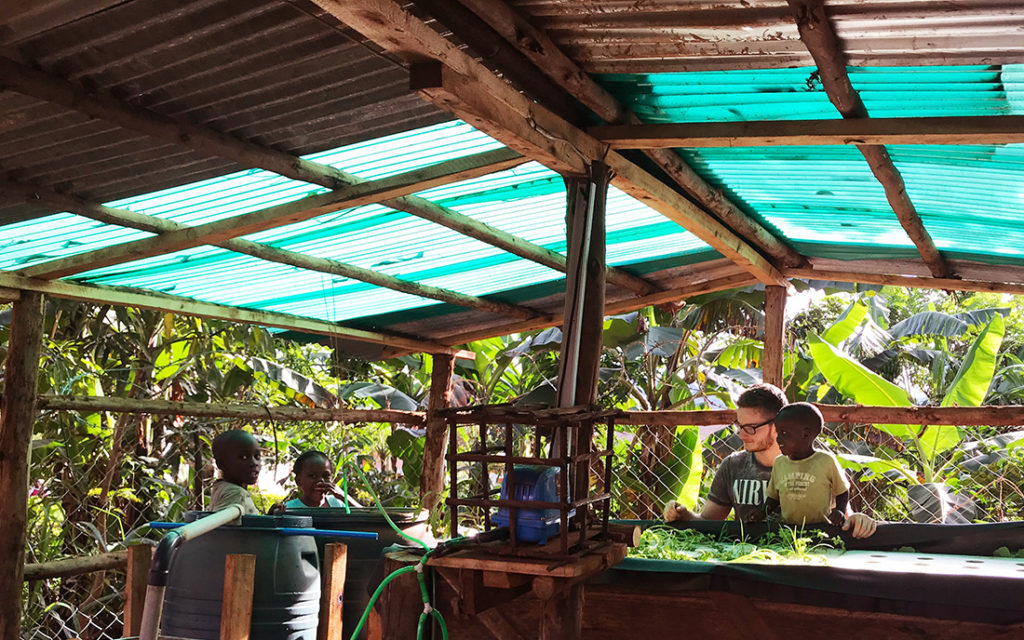
Samaki Aquapond – Fresh fish from rural Rwanda
Students at the University of Aachen have developed a different solution to improve the nutritional situation of people in southern Africa – specifically in Rwanda. With local communities, they have developed simple aquaponics systems that make the diet more varied and healthier. This project by Enactus Aachen e.V. has been completed without any plans for a spin-off venture. This is because the technology is not new and the knowledge is publicly available, meaning the idea can be adopted locally everywhere.
Facts & Figures
Successful spin-offs as impact start-ups
It is wonderful to see how the supported projects have developed since we supported them (with our support ranging back a maximum of 5 years):
- Five of the nine projects have successfully been spun off as business (Socialbnb, glassic, Save the Grain) or are likely to be soon (Plastic to Paint, FishNBricks)
- Two of the nine projects are currently on hold or in a process to redesign the business model (Moufense, Seasoilution)
- One of the nine projects has been integrated into an existing non-profit (Pfandgeben App)
- One of the nine projects has ended after a successful set-up of a prototype on site (Samaki Aquapond)
Predominant focus on the global South, with exceptions
All but one of the nine projects solve challenges in the Global South, one (Pfandgeben) focuses exclusively on Germany and Socialbnb has a global focus. Africa and Southeast Asia are more strongly represented than other regions.
Circular economy and poverty reduction as dominant topics
All nine projects demonstrate solutions for combating poverty with an entrepreneurial spirit.
Almost all projects (except Moufense) contribute to a circular economy, that is a mindful use of natural resources.
Overall, a large number of topics are covered, including oceans (3), health (3), dealing with plastic (2), nutrition (2), and, by coincidence, two projects innovative solutions linked to bottle deposit systems.

